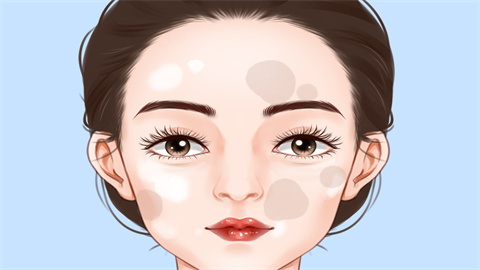How can I remove dark spots on my face?
Facial spots may be caused by genetic factors, sun exposure, endocrine disorders, eczema, chronic hepatitis, and other factors. Usually, spots can be treated through enhanced sun protection, lifestyle modifications, a balanced diet, and medication. If symptoms are abnormal, prompt medical attention is recommended. Detailed analysis is as follows:

1. Genetic factors: If family members have facial spots, the likelihood of developing spots increases in offspring. Genetic factors determine the skin's sensitivity to ultraviolet radiation and its pigment metabolism capability. Treatments include using fading products and physical therapies such as photorejuvenation or fractional laser therapy. However, effectiveness may vary among individuals, requiring patience and persistence.
2. Sun exposure: Prolonged exposure to strong sunlight and ultraviolet radiation accelerates skin aging and stimulates melanocytes to secrete melanin, leading to the formation of pigmented spots. It is recommended to enhance sun protection measures, such as applying sunscreen, wearing hats, and using umbrellas, to reduce UV damage to the skin. Additionally, maintaining a balanced diet and regular sleep patterns can help improve skin condition and reduce pigmentation.
3. Endocrine disorders: Hormonal imbalances are common pathological factors leading to facial spots. Imbalances in hormone secretion, such as elevated estrogen levels, can stimulate melanocytes to produce melanin, resulting in pigmented spots. Symptoms may include menstrual irregularities, breast hyperplasia, and mood swings. It is recommended to adjust lifestyle habits, and when necessary, follow medical advice to use medications such as propylthiouracil tablets, methimazole tablets, or propranolol hydrochloride tablets.
4. Eczema: Eczema can damage the skin's barrier function, stimulating melanocytes to secrete melanin, which leads to the formation of pigmented spots. Accompanying symptoms may include skin itching, redness, swelling, and pain. Follow medical advice to apply topical treatments such as prednisone acetate cream, desonide cream, or ketoconazole cream.
5. Chronic hepatitis: Patients with chronic hepatitis experience impaired liver function, which prevents the normal elimination of metabolic waste and toxins from the body. These substances accumulate in the skin, forming pigmented spots. Accompanying symptoms may include jaundice, fatigue, and loss of appetite. The primary treatment involves actively addressing the underlying disease, such as following medical instructions to use antiviral drugs and hepatoprotective drugs like azathioprine tablets, bicyclol tablets, recombinant human interferon α2b injection, and Anluohuaxian Pills. Additionally, dietary adjustments and lifestyle changes, such as quitting smoking, limiting alcohol consumption, and avoiding late nights, are important.
Maintaining a healthy lifestyle in daily life is essential, including balanced nutrition, regular sleep patterns, moderate exercise, and emotional well-being, to enhance overall health and immunity and reduce the occurrence of diseases.






